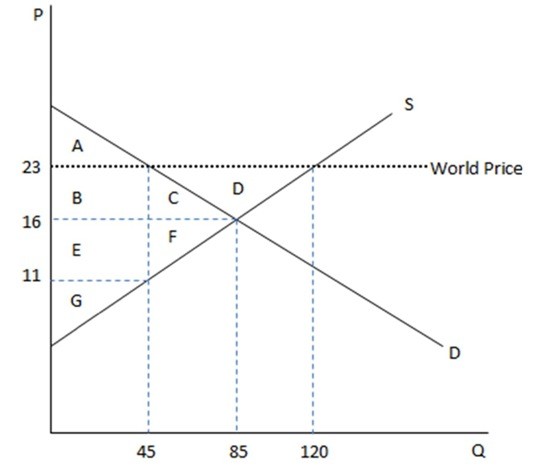When an increase in the quantity of money is considered to be permanent and prices are sticky, then in the short run the exchange rate depreciates and overshoots because:
a. domestic nominal returns fall relative to foreign returns, and traders expect a permanent depreciation in future exchange rates.
b. traders do not change their expectations of the exchange rate, and lower domestic rates make it easier to borrow.
c. inflationary expectations eventually cause a rise in domestic real returns.
d. traders quickly realize that their expectations of future exchange rates are incorrect and eventually prices will become unstuck.
Ans: a. domestic nominal returns fall relative to foreign returns, and traders expect a permanent depreciation in future exchange rates.
You might also like to view...
Of all commercial banks, about ________ belong to the Federal Reserve System
A) 10% B) one half C) one third D) 90%
This graph demonstrates the domestic demand and supply for a good, as well as the world price for that good. According to the graph shown, what is the world price?
According to the graph shown, what is the world price?
A. $45 B. $11 C. $23 D. $16